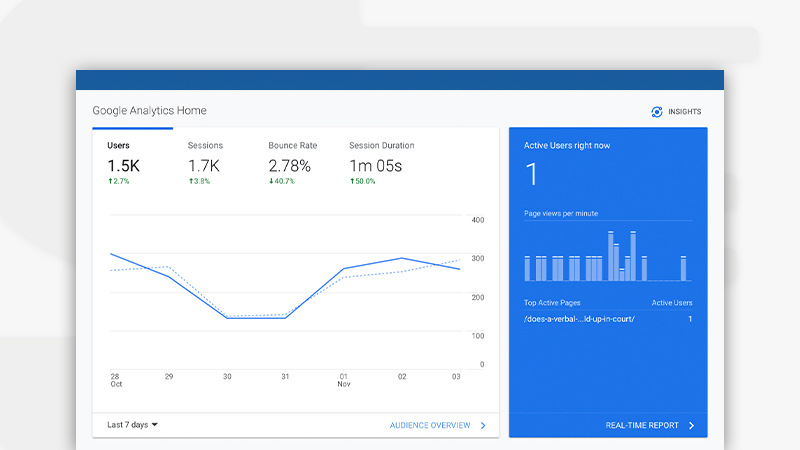It’s fair to say that in the ever-growing digital world, it’s pretty tricky to know what is actually going to work best without a bit of trial and error.
Digital marketing and public relations (PR) are becoming more and more integrated, as businesses want the best of everything because the competition is only getting tougher and tougher.
I want to explore both digital marketing and PR and what contributes to each: stripping it back and leaving you to differentiate which one might be more suited to you and your business.
What is the Purpose of PR?

PR is the concept which manages the flow of information between a business or individual, and the public. The sole purpose of a public relations company is to persuade the public, investors, partners and other bodies who have a certain perspective of important decisions.
A common practice used in PR identifies the target audience and aims to tailor every message to appeal to that audience.
So, PR is about selling the brand by positively managing the communication channels between a company and its stakeholders do it and gain a positive reputation through an effective PR strategy.
What is the Purpose of Digital Marketing?

Generally speaking, marketing generally covers promotional, direct marketing and advertising which seeks to return direct sales and therefore gaining revenue by reaching out to current and potential customers.
Digital marketing combines all marketing efforts that use electronic devices on the internet. Businesses leverage digital channels like search engines, email, social media and so on in order to connect with current and prospective customers.
At the minute, digital marketing seems to be a bit of a buzzword, but I can assure you that it’s absolutely for good reason. As more and more businesses are gaining more customers and essentially more revenue from increasing their brand awareness online, it seems like the best option for right now. But, we’re going to see if that’s true…
Can the Two Be Integrated?

Typically speaking, PR and marketing teams tend to be in different territories. A PR team will be focussed on media relations and getting the names, identities and personalities of your clients’ names out there.
Then, the marketing side of things, those individuals will spend their time connecting your clients’ products with customers. This approach made sense under 20th-century practices, but PR and marketing teams have different goals and techniques for how they managed their jobs, even working at cross-purposes if it wasn’t 100% clear.
To be quite frank, the internet has changed that, as customers, client and social media platforms are now able to search for products and companies which interest them without ever interacting with any of the ‘traditional’ PR and marketing efforts.
Channels
One of the main differences between digital marketing and PR are the channels used to accomplish what they set out to do. Since digital marketing is purely within the online sphere, its marketing channels do not include tradition channels.
Instead, they focus on pay-per-click (PPC), social media, paid media, content marketing, Search Engine Optimisation (SEO), creative and web development. Modern-day PR often combines a mixture of both traditional and digital channels, including online publications, print publications and social media platforms.
How is PR Beneficial for Small Businesses?

Yes, okay, we know that this is quite niche, but I’m relating this to us here at Strawberry Forge.
PR can be great for small businesses, firstly, because it’ll mean your budget goes a long way in terms of money but may be a little more costly in terms of time.
PR does build trust and credibility to your (new) brand without spending too many English pounds, as well as boosting your brand visibility. Unlike traditional media, online media doesn’t necessarily have a ‘shelf life’.
Some businesses might actually prefer PR to advertising: whether it’s through word-of-mouth, customer testimonials or editorial media coverage.
Because of social media, we’re generally more exposed to so much marketing and advertising content, and people don’t trust brands as much anymore, which is why PR content is believed to provide an original touch to your business — is this dated though?
But PR loves marketing. Instead of competing against each other, they can supplement and support each other: using PR to provide real value to your audience, could mean you win people’s attention (but it’s hard work I tell you).
What about Digital Marketing?
High conversion rates generated by effective digital marketing is going to deliver plenty of profitable benefits for you and your business when it comes to better and higher revenue.
From better revenue growth expectancy, a small-medium business using digital marketing techniques is like to have better chances of explaining their workforce and business, which will allow for better and larger reaching markets nationally, and even globally.
Similar to what we’ve said about PR, digital marketing rides on the current trends that focuses more on the social media signals as from direct and more personalised interaction between a brand or business and their target audience.
Digital marketing tends to leverage on social media signals, social proof and testimonials from actual consumers who’ve purchased, joint or encountered the service of a business. The more reliable these social signs are, then the high rate it’s ale to generate from target audiences.
So, Where Should You Prioritise?

If your budget does allow for it, having both PR and content marketing including social media then it’s probably a combination that is going to get you the most success, and therefore, revenue.
Media coverage which is gained through the efforts of self-published content simply doesn’t go as far without amplification. It’s got to be shared to get all the attention possible.
However, it really depends on which route you’re wanting to go down as to what you achieve. In terms of PR, you’re going to need to think about how you’ll work with a PR agency for them to take full control of how and where you’re going to be exposed.
Whereas with marketing, there is a lot of communication, provided you’re with a good agency similar to Strawberry Forge, who listen to your objectives and goals, and can establish whether they’re achievable or need some work.
Essentially, we’ve established that everything is going digital, we find out most things on social media platforms, and this is something a digital marketing agency can specialise in, and a PR agency couldn’t. Additionally, a PR agency isn’t going to be able to track your progress in the same way that a digital marketing agency could, which is essential with such hefty competition!
So, where does this leave you?







